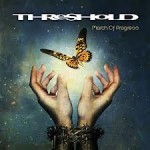The Guardian’s Alexis Petridis has penned a splendidly snarky piece about the predictable nature of the Brit Awards.
In Wednesday’s Guardian, the outgoing chairman of the Brits, David Joseph, proudly announced that during his three-year tenure he had successfully rid the awards of their “chaotic” element and introduced “more gravitas”. There’s a compelling argument to suggest that gravitas isn’t necessarily the thing you’re looking for in an event that’s supposed to be celebrating a thrilling youth phenomenon, but what Joseph seemed to mean was that the Brit awards ceremony no longer has an interest in delivering surprises of any kind.
I’m assuming the “chaotic elements” include Iron Maiden winning Best Live Act a few years back, which immediately prompted that particular award to be dropped the following year, lest rock gatecrashed the party again.
“The lineup goes from pop to discovery to indie,” added Joseph, puffing the event’s supposed variety. Leaving aside the fact that he appears to have invented a hitherto-unheard-of genre called discovery, it’s perhaps worth noting that the winners aren’t really as eclectic as all that. What holds sway in the British musical mainstream in 2013 isn’t a genre so much as a certain earnestness: it’s perhaps the only thing that links Sandé’s pop-soul and Mumford & Sons’ tweedy take on acoustic folk rock.
Leaving aside the imaginary genre of “Discovery”, does anyone actually believe that manufactured pop and three-chord indie are the only forms of music that currently exist?
As Alexis Petridis makes clear, the Brits is all about celebrating commercial success. And anyone who actually knows a thing about music will recognise that mainstream success has far more to do with the amount of money thrown at promoting an act than the actual quality of the music. So anyone who accuses you of being a musical snob if you dare to suggest that the Brit Awards does not represent the best of British music is merely parading their ignorance.
The sad truth is that the majority of “mainstream” audience is now made up from people who are unaware of the existence of anything other than whatever music those who count the money want them to hear.
Unfortuately it’s still difficult to counter someone gushing about how wonderful Mumford and Sons are without sounding patronising. Or people saying Adele is one of the greatest singers because everything else they’ve heard is autotuned pop or tuneless indie. There is a whole world of great music out there, and they’re oblivious to it. Ultimately, I suppose, it’s their loss.


 I’ve got mixed feelings about the
I’ve got mixed feelings about the 





 Over a twenty-plus year career Threshold have established themselves as one of Britain’s premier prog-metal bands; a sort of British version of Dream Theater, only with a greater emphasis on solid songwriting rather than technical showboating. The band has changed lineups over the years with guitarist Karl Groom and keyboard player Richard West the only constant members, although the rhythm section of Johanne James and Steve Anderson have now been in the band for many years.
Over a twenty-plus year career Threshold have established themselves as one of Britain’s premier prog-metal bands; a sort of British version of Dream Theater, only with a greater emphasis on solid songwriting rather than technical showboating. The band has changed lineups over the years with guitarist Karl Groom and keyboard player Richard West the only constant members, although the rhythm section of Johanne James and Steve Anderson have now been in the band for many years.